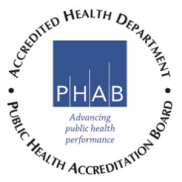What is the Behavioral Risk Factor Surveillance System?

The Behavioral Risk Factor Surveillance System (BRFSS) is a standardized, random telephone health survey conducted by each of the 50 states, Washington, D.C., and three U.S. territories under the guidance of the Centers for Disease Control and Prevention (CDC).
The BRFSS survey began in the 1980s after research showed that personal health behaviors play an important role in the existence of unnecessary deaths and illnesses. The survey allows individual states to collect data on personal behaviors (such as smoking, drinking, not getting exercise, being overweight, and not getting preventive medical care) that are linked to the leading causes of death (heart disease, cancer, stroke, diabetes, injury) and other important health issues. This information is used in a number of ways by different states.
The Arkansas Department of Health has been conducting a monthly BRFSS survey continuously since 1993 and currently completes 3,300 landline telephone and 1,900 cellular phone interviews per year. Various programs within the Arkansas Department of Health, as well as other organizations, use information received from the survey for such purposes as:
- Developing state plans to reduce the burden of disease.
- Measuring the impact of health-related community projects on reducing the burden of disease.
- Assessing risk factors for disease and developing interventions to decrease them.
- Preparing grant proposals.
- Educating the public about community health issues.
Information from the BRFSS surveys can also be used to monitor Arkansas’ progress in meeting the U.S. Healthy People 2020 goals to improve the quality and years of healthy life of all citizens and to reduce health disparities or differences in health status between different groups of people.
BRFSS Query System
What is the Pregnancy Risk Assessment Monitoring System Survey (PRAMS)?

The Pregnancy Risk Assessment Monitoring System (PRAMS) survey is a joint research project between the Arkansas Department of Health and the U.S. Centers for Disease Control and Prevention (CDC). The PRAMS survey was started by the CDC in 1987 to provide states information they needed to reduce the number and percentage of babies that are low birthweight and to prevent infant mortality. The program was later expanded to support the CDC’s Safe Motherhood Initiative to help women have healthy pregnancies and deliver healthy babies. Arkansas has been conducting the survey since 1997.
Women who receive the survey are chosen from a sample of all women who recently had a live birth. Arkansas sends surveys to about 1,800 or more women a year. The PRAMS survey collects information from new mothers about their experiences and behaviors before, during, and after their pregnancy that might affect the health of their baby. This information includes such topics as pregnancy intention, smoking, drinking, prenatal care, breastfeeding, and flu vaccinations. The PRAMS dataset also includes information from the birth certificates that can be analyzed to help improve the health of infants.
Because the same data collection methods are used in all states conducting the survey, Arkansas data can be compared to data from other states.
PRAMS data are used in a number of ways:
- To develop programs or interventions to improve infant health
- To identify groups of women at high risk for infant health problems
- To monitor changes in factors related to infant health,
- To measure progress towards goals in improving the health of infants.


